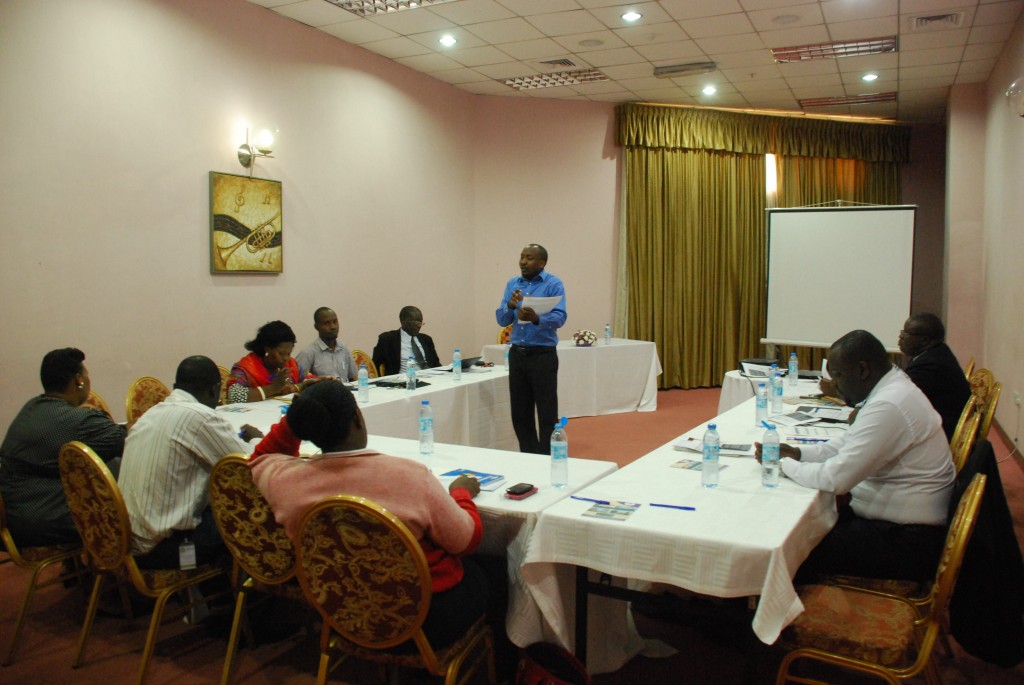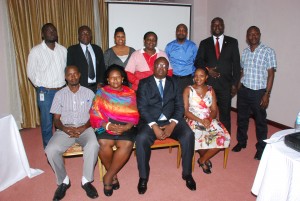The Early Warning System is a joint initiative by the International Accountability Project and the Center for International Environmental Law. The Early Warning System ensures local communities, and the organizations that support them, have verified information about projects likely to cause human rights abuses and clear strategies for advocacy. Read more about this initiative here.
By Guest Blogger John Mwebe, International Accountability Project
Like many developing economies, Uganda’s efforts to develop its infrastructure, improve its agricultural and industrial sectors and promote science and technology comes at a cost that can’t be met only by using its limited resources. Such projects have to be financed through international financial institutions whose priorities align with those of the government’s. An increase in investment projects all over the country means the acquisition of resources that are owned or managed by communities where these projects are being planned.
When conflicts arise, as they often do, between communities and financiers I am always impressed by the range of solutions proposed by communities to protect or claim their resources. Depending on the level of community empowerment, different means are devised including engaging local authorities to prevail upon investors, staging protests, obtaining court orders to stop project activities or outright violence. In most cases, civil society organizations intervene when the crisis is full blown requiring litigation or mediation. But these organizations could play a more active role in empowering communities to engage with development plans throughout the project cycle.

To bridge this gap, the International Accountability Project organized a training on the Early Warning System for 9 civil society organizations in Uganda. The Early Warning System ensures local communities, and the organizations that support them, have verified information about projects likely to cause human and environmental rights abuse. When I introduced the early warning concept, participants looked uncertain. Christine Kaaya from Volunteer Efforts for Development Concerns (VEDCO) asked, “An early warning system for investment projects? How does that work? We have always known early warning systems in the climate change field!” As someone who works with farmer organizations, Christine’s remark was based on her understanding of an early warning system as a set of strategies aimed at building farmer communities’ resilience in the face of adverse climate changes that affect their productivity. Reflecting upon this understanding, the introduction of this system in the field of investment was a perfect start to working around defining community ‘resilience’ in the development process.
Participants were drawn from organizations at a national level (National Association for Professional Environmentalists (NAPE), VEDCO, Advocates Coalition for Development and Environment, Uganda Debt Network and Uganda Land Owners Association), international level (Oxfam) and coalitions (Uganda Land Alliance, Coalition for Pastoralists Civil Society Organizations and Food Rights Alliance) working with affected communities. They were introduced to the Early Warning System as a tool that could be used to develop clear strategies for advocacy against investors, national governments and international financial institutions.
Participants were asked to share experiences of their organization’s interventions with communities affected by development projects. David Kureeba from the NAPE explained his organization’s role in community action against the Bujagali Dam project. He noted that Bujagali Electricity Limited relocated people from the project area with promises of payment and provision of electricity, water, seedlings and jobs, all of which were never fulfilled. After many futile meetings with the company officials, communities asked their area local leadership to intervene but were not helped. They then contacted the district leadership who were not helpful either. Finally, they sought help from Exotic, a local NGO, which referred them to NAPE.

By analyzing this case, we asked ourselves: ‘Were community consultations held before project approval? How were the people involved in the implementation of the project? What was the project’s dispute resolution mechanism? What could communities have done differently if they had the project information they needed?’
Participants agreed that if communities are to meaningfully engage with investors and financiers, access to accurate project information is crucial. The discussion around what they felt communities could have done differently if they possessed information pointed to the need to focus community demands at investors and the ability to hold them accountable. Emphasis was also placed on organization’s advocacy around access to project information for all people affected by development projects.
Looking at NAPE’s intervention in the Bujagali case where an out of court settlement was reached and communities eventually compensated, I can only imagine how much more communities could have done if they had access to information about the project earlier. With the limited resources for organizations like NAPE to support community litigation cases, the alternative lies with the use of early warning information to empower communities to participate in consultations prior to project approval and monitor implementation.
As noted by Benjamin Franklin, “An investment in knowledge always pays the best interest.” The Early Warning System presents an opportunity to empower communities to participate in the development process and reduce conflict. If this is realized, development will be lived by the people it was intended to help.
Information on the current projects can be accessed by signing up for alerts on the Early Warning System site (http://bankonhumanrights.org/ews/)
Originally posted on May 13, 2015.
